How to Clean Your Pet’s Teeth
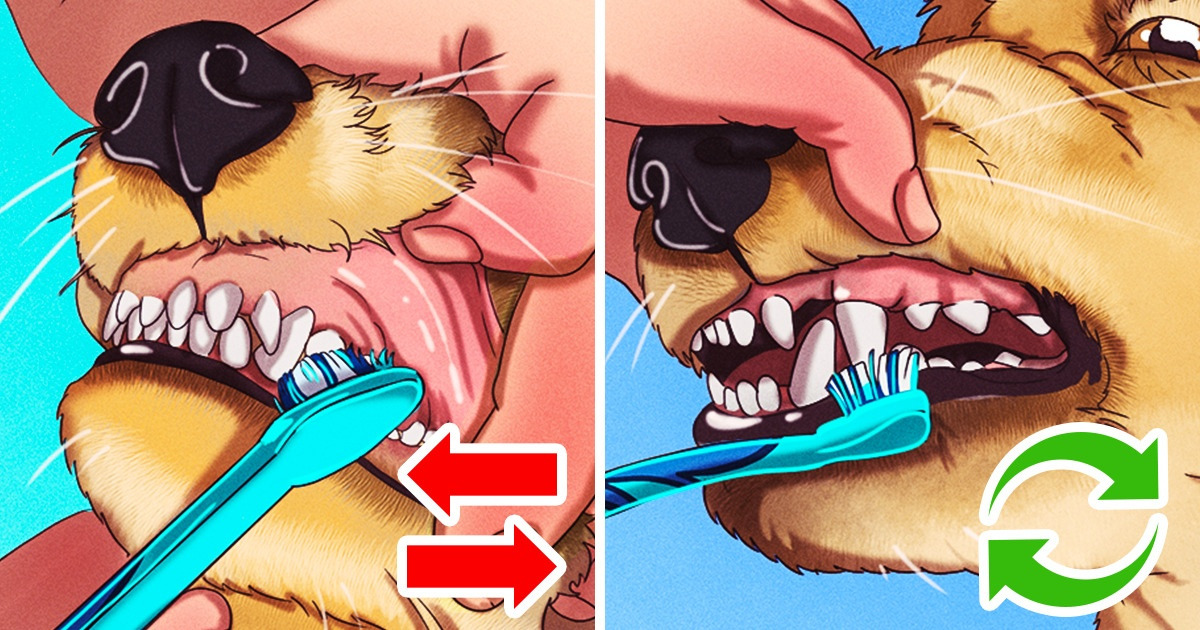
A healthy mouth is important; that’s why we brush our teeth every day. Our 4-legged friends can benefit from having theirs brushed too, preventing plaque buildup that can sometimes lead to health conditions. 5-Minute Crafts will help you learn the best practices for brushing your pet’s teeth.
❗Check the best way to brush your dog or cat’s teeth and the most appropriate tools to do so with a professional. This article is merely introductory and can’t replace professional advice.
What you’ll need
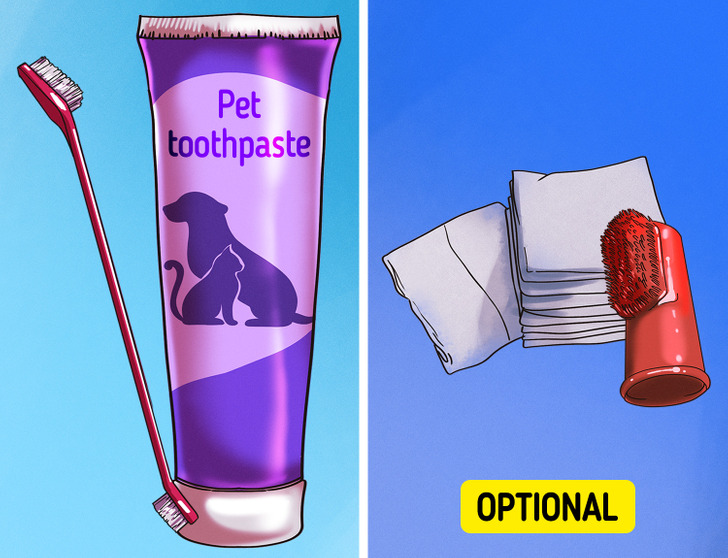
- Toothpaste for pets (never use human toothpaste, it can hurt your pet’s stomach)
- Soft bristle baby toothbrush or toothbrush for pets
- Optional: piece of gauze
- Optional: finger brush
Instructions
1. Find the perfect time and position

- Choose a quiet time and place and make it a routine, they will eventually learn to expect it.
- Make sure your pet is calm and relaxed.
- Sit at the same level as your pet, in a non-threatening position where you can handle their mouth and teeth.
- Cats can be harder to get into this position, so do it in one of their favorite places where they usually sit or lay for a long time. It is also easier to do this when they are hungry so you can use food as motivation.
2. Make your pet comfortable with the process
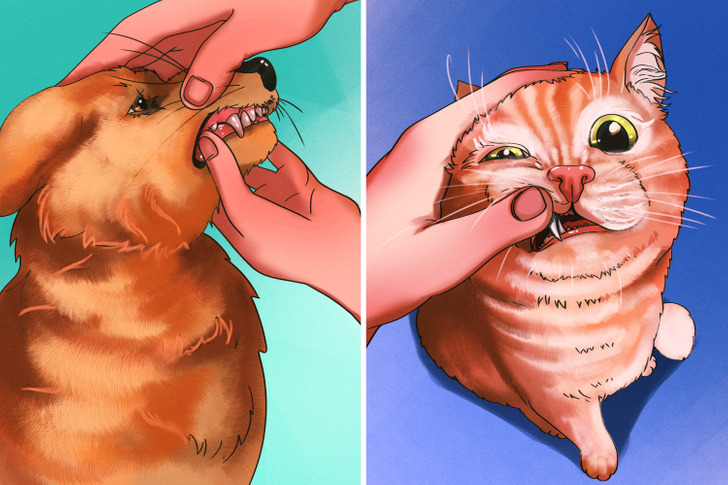
- See if your pet is willing to let you touch their mouth. Run your fingers across their gum line and teeth, applying some light pressure.
- Dip your fingers into their favorite food to make them more willing to have their mouths touched.
- Introduce the toothpaste. Place a bit on a finger and have them lick it. Pet toothpaste will come in flavors like peanut butter or poultry, if they refuse to lick it, try a different flavor.
- You might need to repeat this step for a couple of days until they’re truly comfortable with having something in their mouths.
- Follow these same steps for both cats and dogs but don’t forget that cats can be more sensitive to things they haven’t experienced yet so they will require a bit more patience and positive reinforcement.
3. Brush their teeth
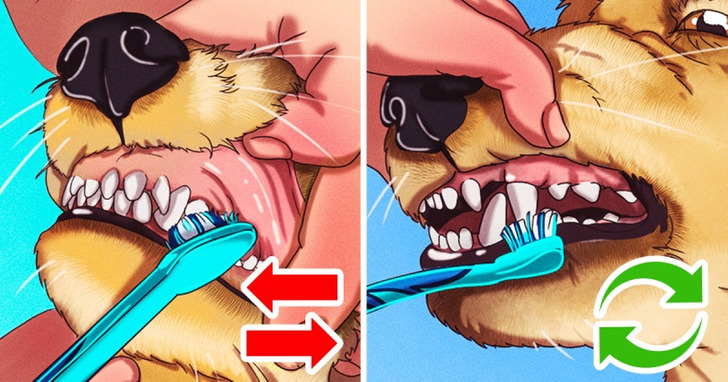
- Put the toothpaste on the brush and gently lift their lips, exposing their teeth.
- Go in with the brush, at a 45-degree angle to the gum line and brush in small circles. Start with a couple of teeth and gradually brush more, gauging your pet’s acceptance of the process.
- Aim to brush for about 2 minutes.
- Focus on plaque buildup, generally on the canine and back teeth.
- If they reject the toothbrush, try a finger brush using the same method.
- These steps work on both cats and dogs but cats may have a tendency to reject the toothbrush and the finger brush. If that happens, try a piece of gauze wrapped around your finger as a toothbrush replacement.
- If you own a cat, buy the smallest toothbrush available.
4. Choose a reward
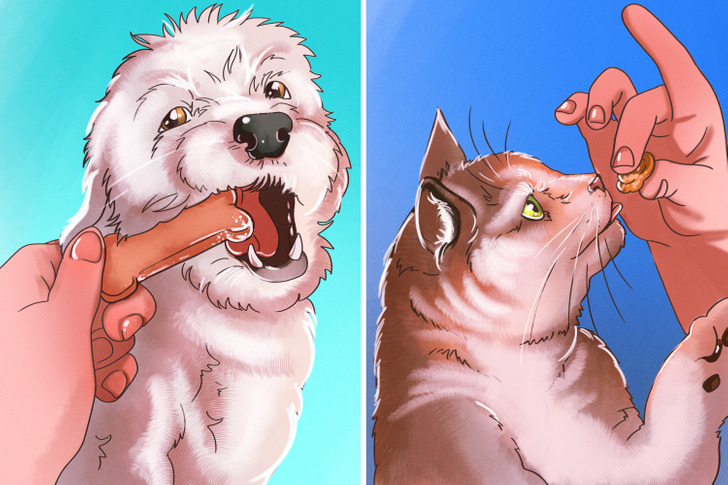
- Always end on a positive note. Give your pet their favorite treat or extra attention.
- Certain treats and chews help prevent plaque buildup and this is a good time to introduce them.
- Cats can be more compliant if they see the process as a fun game with rewards. Have some food on hand not only after but during the process.
Bonus

Tips for success:
- Brush 2 to 3 times a week or as recommended by a vet.
- Be patient, talk to your pet positively during brushing, and use love and praise.
- Focus on the outside of the teeth.
Share This Article